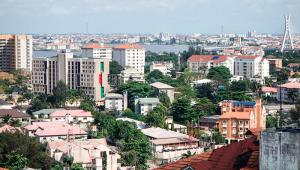By Judith Ugwumadu | 15 October 2013
Governments around the world should offer all their citizens access to bank accounts and other financial services by 2020, in a bid to reduce poverty, the World Bank has said.
World Bank president Jim Yong Kim said universal financial access was vital to overcoming the enormous challenge of poverty around the world adding that the target was achievable,
‘As early as 2020, such instruments as e-money accounts, along with debit cards and low-cost regular bank accounts, can significantly increase financial access for those who are now excluded,’ he said at a World Bank Forum meeting on October 11.
‘If [countries] fulfil their commitments, if other countries also set bold targets, and if the private sector responds by unleashing its resources and know-how – then we can reach universal access by 2020.’
Kim’s remarks were endorsed by a panel of government and business leaders who attended the forum.
Ngozi Okonjo-Iweala, Nigeria’s coordinating minister of the economy and minister of finance, recently launched the country’s financial inclusion strategy. She said: ‘Beyond ensuring universal financial access, a challenge which we all face is to ensure that financial services are available to meet the range of household and enterprise needs.’
John Rwangombwa, governor of the Central Bank of Rwanda, said: ‘Rwanda has an ambitious vision for financial inclusion, and I am pleased to say that we have made significant progress already towards that target, almost doubling formal financial inclusion from 21% of adults in 2008 to 42% in 2012.’
Governments are now expected to set and achieve country-led national targets as a means of broadening financial inclusion, Kim said.
‘When low-income workers or poor families gain access to basic financial services, they gain a foothold on the first rung of the ladder toward prosperity,’ he added.
‘Access to savings accounts, credit or remittances can help families afford essential services like water, electricity, housing, education and health care. When firms gain access to financial services such as credit or insurance, they can reduce business risks, expand their firms and create more jobs.’
Kim emphasised that all parts of the World Bank was committed to working with both public-sector and private-sector institutions to help countries achieve their financial inclusion goals.













